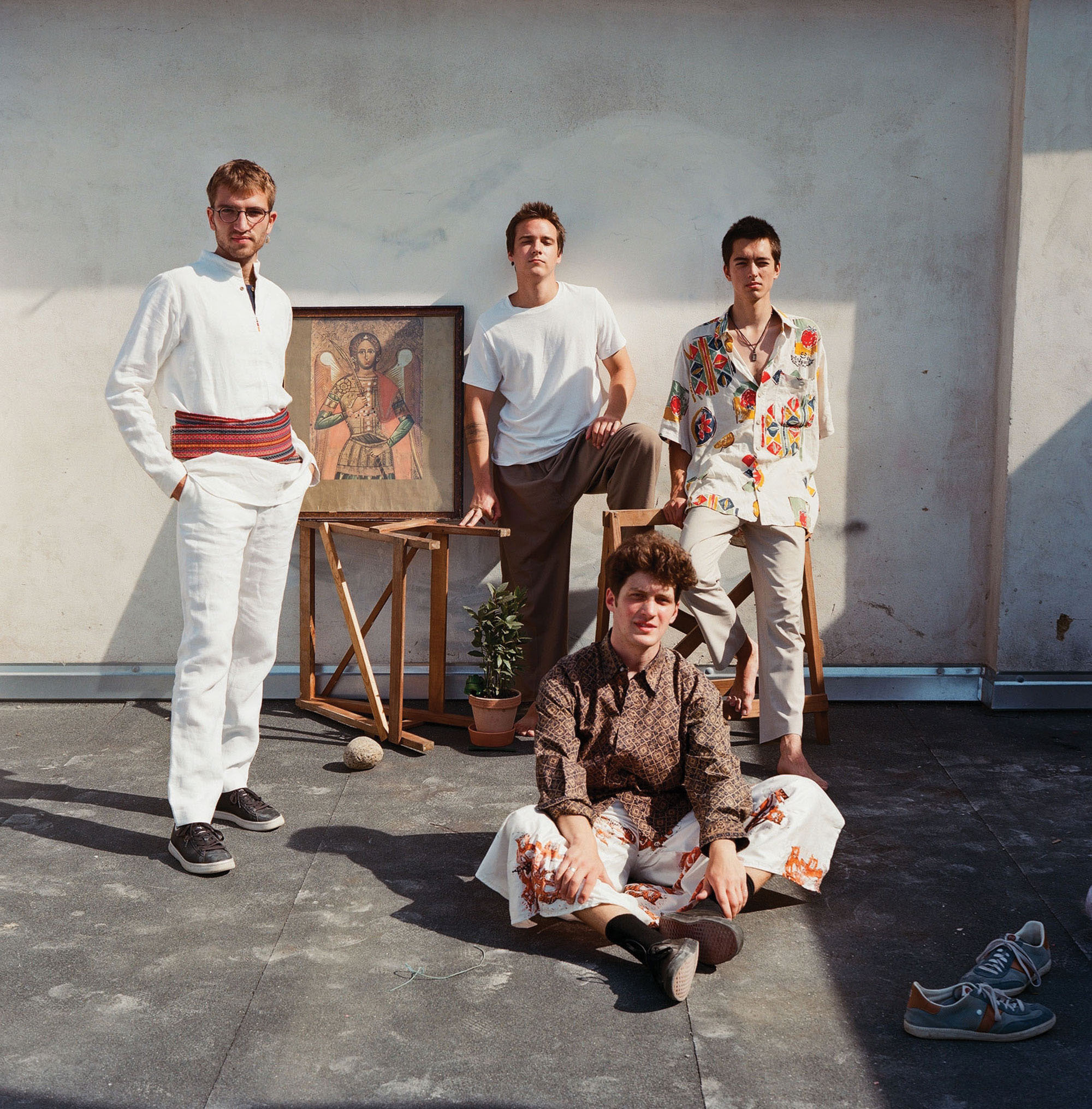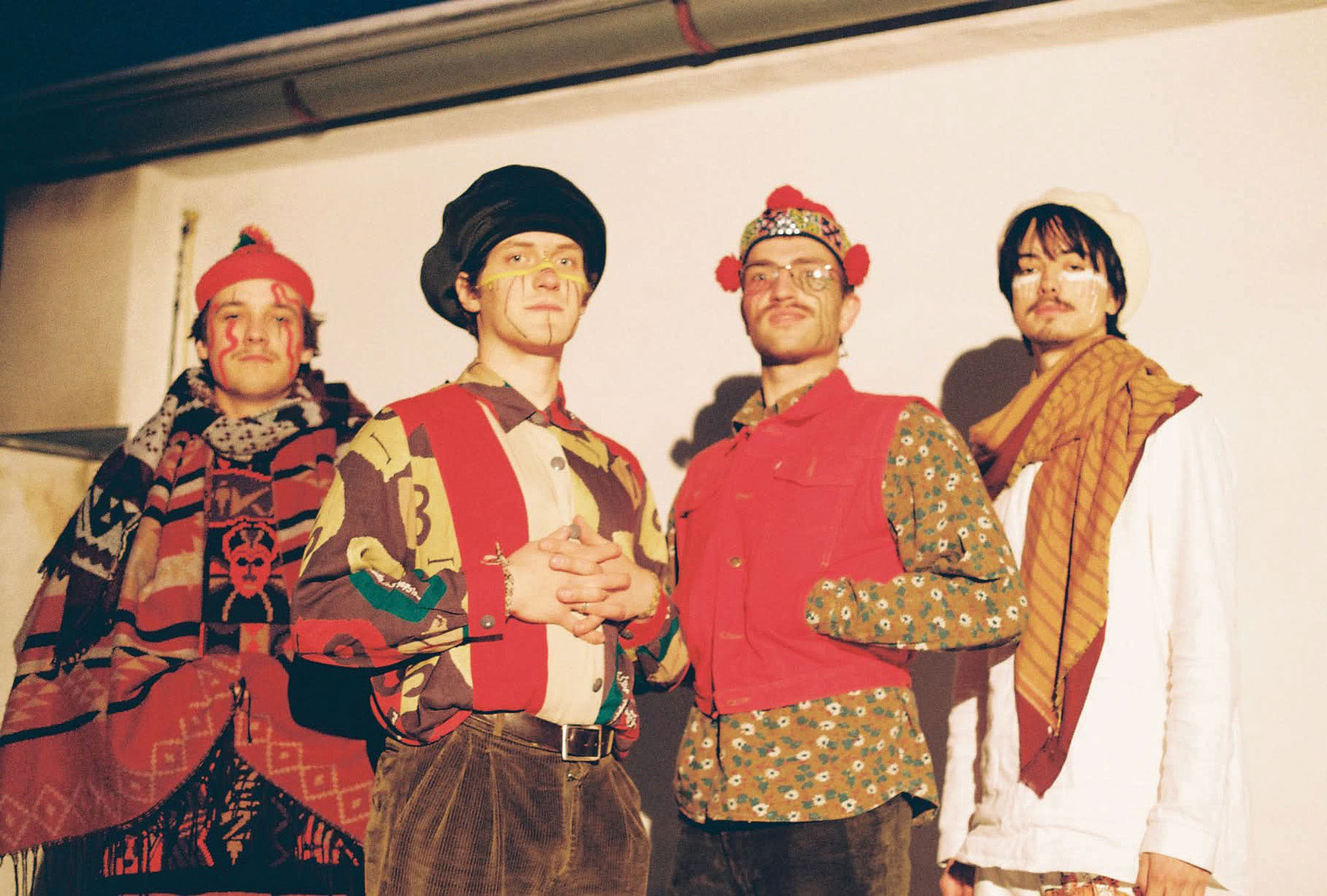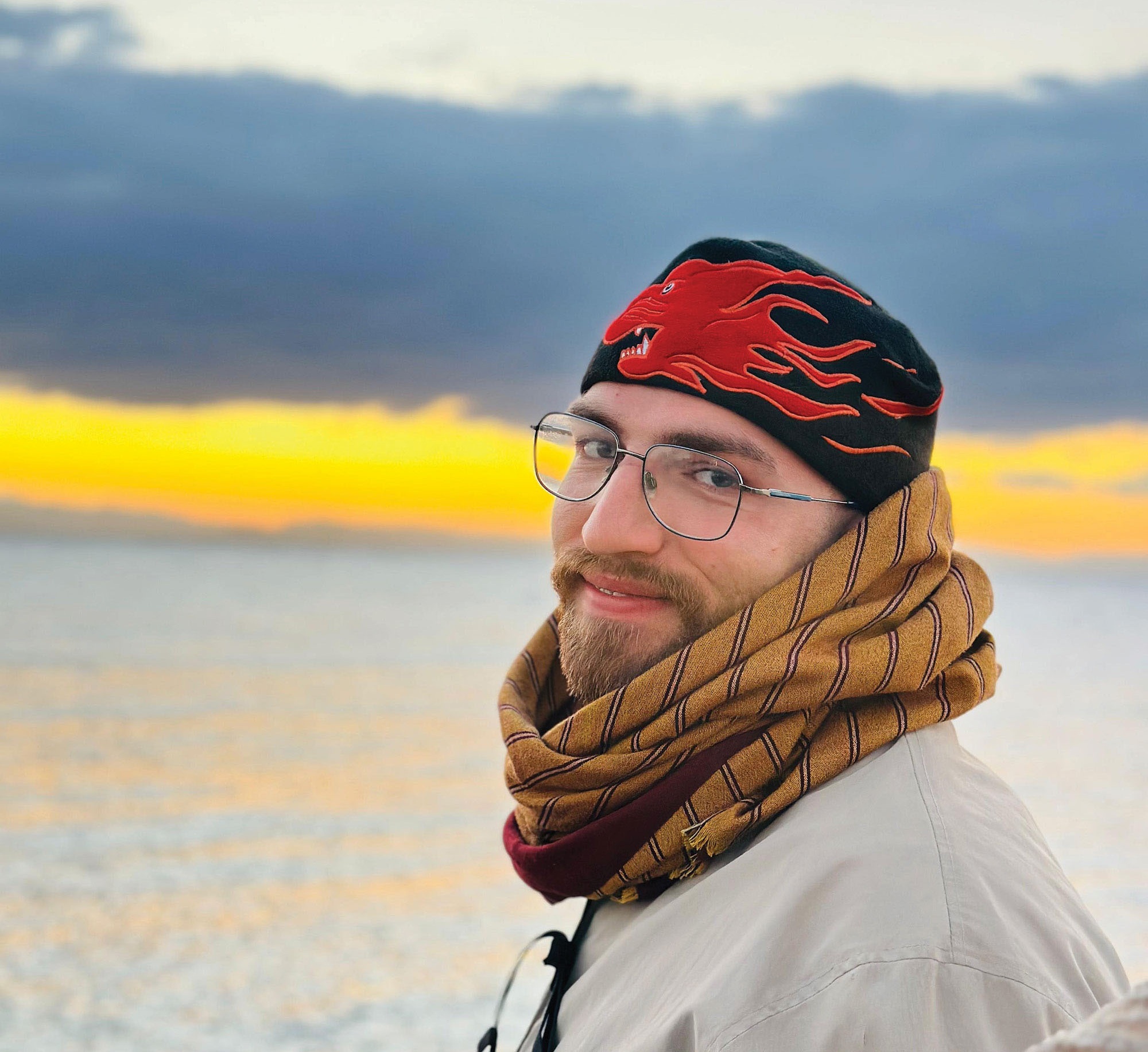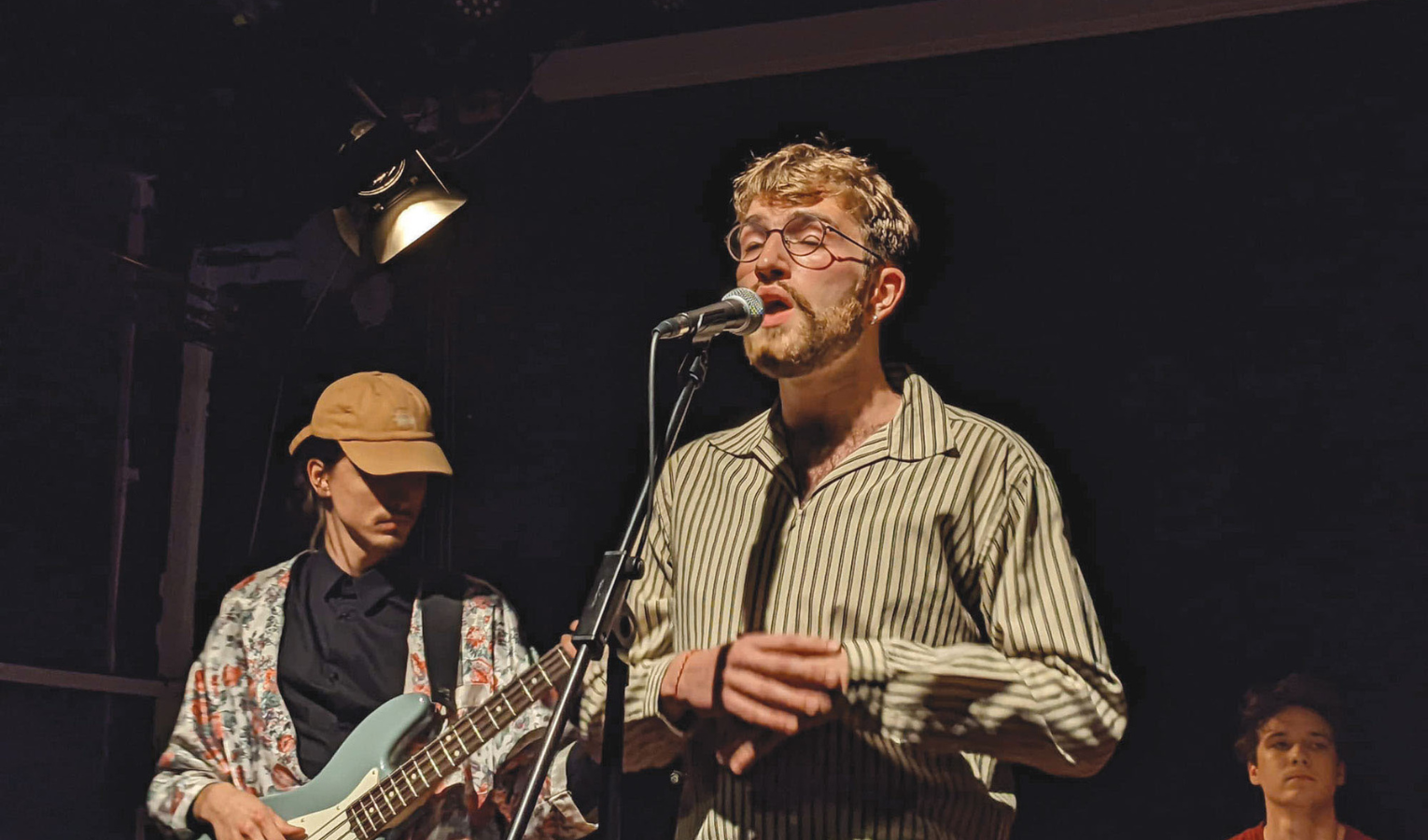Learning Arabic through CASA@AUC, Aleksandar Columby brings his love of music, heritage and the arts to AUC Tahrir Square.

With the Abaziya band

With the Abaziya band

Watching the first sunrise of the year in Dahab, Egypt on January 1, 2025
On stage at last year’s AUC Tahrir CultureFest, singing in Arabic for the Nostalgic Notes of Cairo performance was Aleksandar Columby, a Czech-Serbian independent artist and CASA@AUC student in the 2024-2025 academic year. Columby has a bachelor’s in Middle East studies and Arabic language from Charles University.
Singing Cairo
“I’ve been singing ever since I had a voice,” Columby says. After moving to Cairo for the CASA@AUC program, Columby has continued to venture down various musical pursuits. At the Tahrir CultureFest, Columby showcased his musical talent with AUC’s cocurricular Singing Club.
The group performed traditional Egyptian songs, Touba, El-Helwa Di and Al-Qahira w Nilha, attracting a lively audience on the green at the Tahrir Square campus. “Learning these songs was not very challenging, as I have been singing in Arabic ever since I started studying the language five years ago,” says Columby.
He has also performed Arabic music with his band Abaziya, an acoustic musical project of which Columby is frontman and singer. He was awarded a first-place prize by the Palestinian embassy in Prague for his participation in an Arabic singing competition as part of the Nad Prahou půlměsíc festival. Columby says, “I had the chance to visit Palestine as a result of my win, fulfilling my lifelong dream of visiting holy sites in Jerusalem, Jericho and the Jordan River.”
Columby accredits his sensibility for Arabic music to his background in traditional Balkan music, especially the genre of sevdah and Byzantine chants and singing. “Listening to and imitating various Arabic singers helped me understand how my voice can and should sound when singing Arabic music,” Columby says. Apart from singing, Columby wants to educate himself on Arabic music theory and Arabic scales, the maqamat.
“Listening to and imitating various Arabic singers helped me understand how my voice can and should sound when singing Arabic music."
Cairo By Chance
Columby originally came to Cairo two years ago as an exchange student at AUC after canceling his semester abroad in Morocco due to a car accident. “Because of the accident, I couldn’t fly to Morocco. Later on, I got an email saying, ‘Hey, there’s an Erasmus you can do in Cairo,’” he says.
While Columby never expected to study in Egypt, it changed the course of his life. “If I hadn’t come to study at AUC, I wouldn’t be here now. I wouldn’t have shared the same experiences or met the same people here. I even acted in an Egyptian movie,” he says.
“If I hadn’t come to study at AUC, I wouldn’t be here now. I wouldn’t have shared the same experiences or met the same people here."
Columby applied to CASA@AUC due to its strong reputation and the scholarships offered to international students. “There are other Arabic programs that are only open to Americans, so it’s great that Europeans can apply to AUC and study here on a full scholarship,” he says. “Also, part of me felt very accepted in Egypt and really wanted to stay. This is the reason why I came back.”
Peers, Priorities and Pursuits
The academic cohort at CASA@AUC is “very bright, driven and diverse,” Columby says. “My classmates have led me to new ways of thinking about my academic journey as well as my future career ambitions and priorities. Through shared discussions, I’ve gained a lot of insight about myself.” Columby believes that his experience at CASA@AUC brought him closer to his “authentic self.”
He also praises the curriculum’s immersive aspect: “The program took us on different day trips, visits, walks and even weekend getaways. Especially during the summer, when there is more focus on the dialect aspect of language, it felt like we were going on an excursion every week.” Columby reported huge improvements in his colloquial and standard Arabic over the year, in part due to the language pledge students are obliged to sign (a pledge to speak only Arabic on AUC grounds as well as with all faculty and students inside or outside campus).
“My classmates have led me to new ways of thinking about my academic journey as well as my future career ambitions and priorities."
Within his cohort, Columby started rehearsing with fellow student Kira Weiss for a Balkan folk music project. In the CASA@AUC duo, Weiss played the violoncello, and Columby sang and accompanied with the guitar. “Once we are ready to perform, we are hoping to organize a concert in downtown Cairo or Maadi and invite everybody interested in traditional Balkan music,” he says.
After last year’s CASA@AUC program ended, Columby extended his stay in Cairo until the winter. “I’ve been pushed to think much more about the future because of the experiences and close relationships I’ve developed here,” he says. He signed for an apartment in Dokki with two other CASA@AUC alumni and spent the summer preparing for the release of his new project’s extended play musical recording, The Palace. He is also finalizing a documentary film he began last winter, has been working as a trainee at the Czech Centres in Egypt during the fall, and has launched his own perfume collection in Cairo, Prague and Belgrade.
While he plans to pursue a master’s degree in Arabic studies or cinema, Columby is also considering work in art and culture in his home country, using Arabic as a language to bypass borders: “I want the language to connect us because I feel like that’s what it’s been doing for me: It’s been connecting me to the world and to people.”
“I want the language to connect us because I feel like that’s what it’s been doing for me: It’s been connecting me to the world and to people.”
Even though he is leaving Cairo soon, Columby will remember feeling inspired by the city as he walked through its streets, admired its architecture, listened to Egyptian music in the metro or simply observed the fast-paced life through the view of his downtown window. “I never thought about coming to Egypt throughout my studies, but I’m so glad I gave it a chance,” he says.


